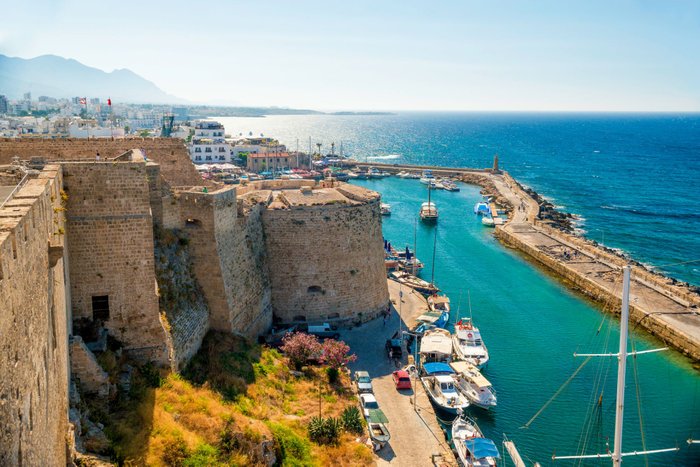Another Mediterranean island is conquering the world of blockchain.
Despite the ongoing decline of prices, the blockchain market made some considerable leaps in terms of regulations and adoption in 2018. One of the more definite trends can be found in smaller nations updating their legislation in favor of the cutting-edge technology. Switzerland already became a fairly popular destination for blockchain companies in previous years, while several tiny islands, such as Malta and Bermuda, turned into international blockchain pioneers during the past 12 months.
In the Eastern Mediterranean Sea, there is another isle that already appeared in the news for fueling a small bitcoin gold rush in 2013, which was triggered by an event that is also known as the Cyprus Haircut. This same nation is also considered a prime location for the fintech industry, as it is home to hundreds of the world’s biggest Forex brokers and online-trading platforms. After conquering the traditional financial markets, entrepreneurs and authorities of Cyprus are eventually marching towards new heights: blockchain technology.
Setting the course
On Dec. 4, 2018, several states within the European Union signed a declaration with the goal of collaborating on the promotion of blockchain application and distributed ledger technologies. Cyprus, which is one of the seven participants, already engaged in another blockchain partnership a few weeks earlier. In October, Invest Cyprus, the national investment partner of the Republic of Cyprus, announced it is collaborating with the Singapore-based blockchain platform VeChain, in order to push forward the development and adoption of the promising innovation.
This falls in line with the aspirations of the Cyprus Securities and Exchange Commission (CySEC), which has been exploring the potentials of blockchain technology for several years and recently launched a blockchain innovation hub. As CySEC chairwoman Demetra Kalogerou commented on the birth of the innovation hub in an interview with Finance Magnates, “the time is ripe to formalize our approach to innovation and ensure disruption is not happening at the expense of investor protection.”
Furthermore, the government of Cyprus recently appointed a joint working group to develop blockchain technology, as Cyprus Mail reported in August. Another Cypriot formation that is supporting the research of blockchain technologies is a non-profit organization called Cyprus Blockchain Technologies. The consortium includes several reputable members, like the University College London, the Bank of Cyprus and KPMG.
Providing the education
Apart from governmental ambitions, the University of Nicosia is an additional entity that plays a big part in the blockchain movements on the island. The educational institution is a long-term supporter of bitcoin and its underlying network, as it offers the first certified online course (MOOC) for blockchain technology and the world’s first master’s degree for digital currencies.
In a recent conversation, Irene Patrikios, the enrollment manager of the University of Nicosia, told me that more than 25,000 students have taken the MOOC and
over 500 students have enrolled in the MSc in digital currencies. According to Patrikios, the university’s graduates are currently “the only people in the world with full academic proof that they know what they are talking about.” She further explained that “with so few individuals out there who understand the space well, companies from all over the world approach us on a regular basis in an effort to recruit our students and alumni.”
Source/More: How Cyprus Is Becoming the Next Blockchain Hotspot
















